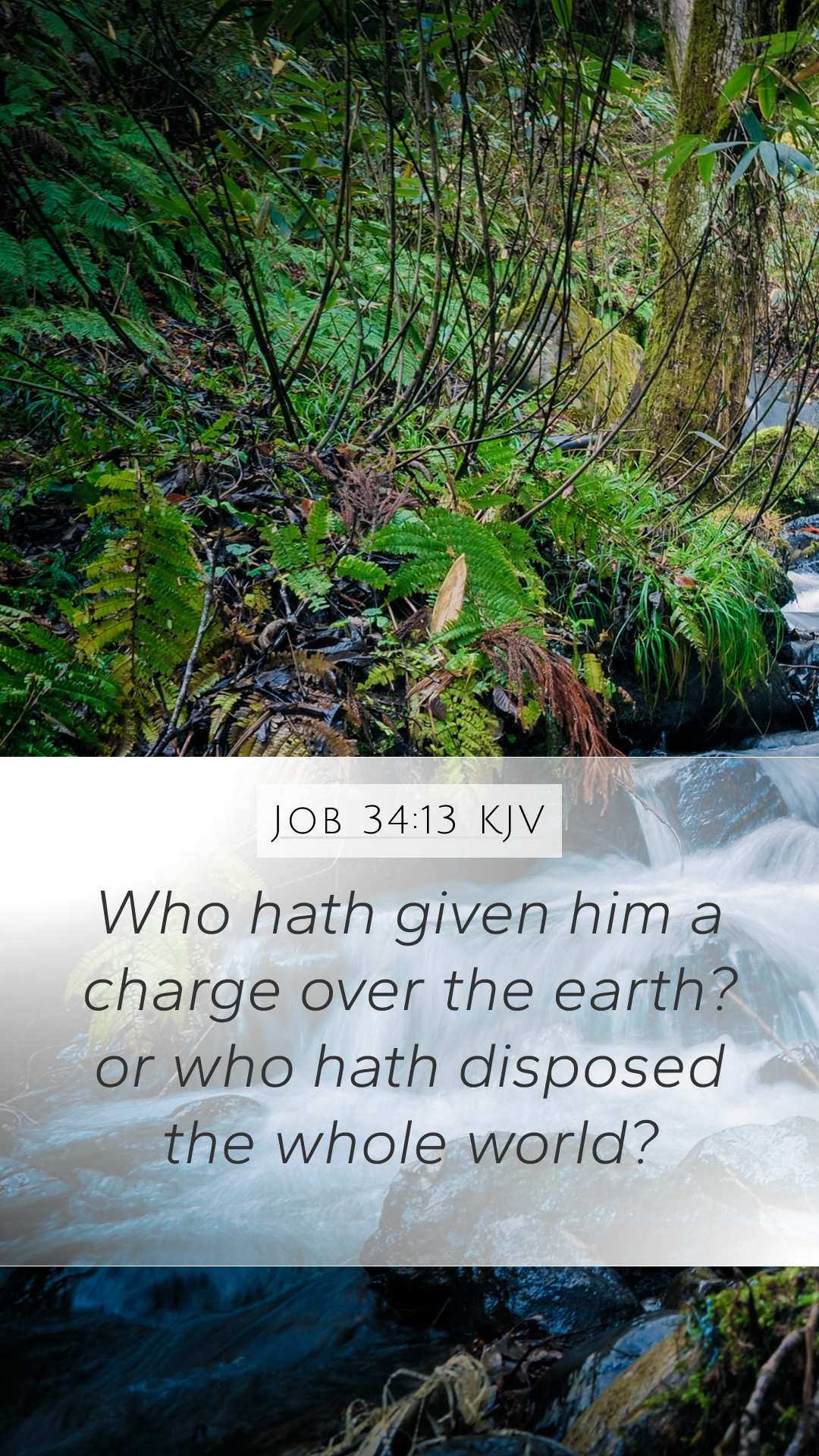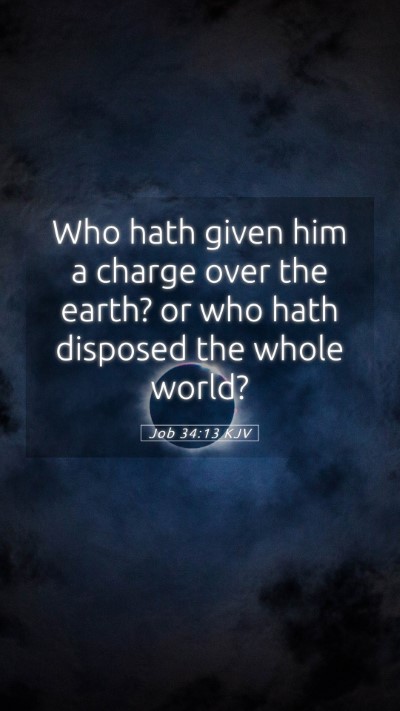Understanding Job 34:13
Job 34:13 states: "Who gave him a charge over the earth? Or who appointed him over the whole world?" This verse raises profound questions regarding divine authority and the governance of creation.
Bible Verse Meaning
In this verse, Job is questioning the motives of his friends who suggest that God punishes the wicked and rewards the righteous in a simplistic manner. The essence of this verse emphasizes God's sovereignty and the lack of human claim over divine decisions.
Insights from Public Domain Commentaries
-
Matthew Henry's Commentary:
Henry points out that Job is expressing the idea that God has the ultimate authority and does not answer to anyone. The verse reflects on the wisdom of God, suggesting that He is the creator and sustainer of the universe. It emphasizes how humans cannot dictate God's actions or plans.
-
Albert Barnes' Notes:
Barnes explains that this verse underscores God's dominion over all the earth. Job is emphasizing that God cannot be questioned regarding His governance, and any assumption otherwise is misplaced. This marks an important theological assertion about the nature of God as the ruler of the universe.
-
Adam Clarke's Commentary:
Clarke adds historical context to the verse, suggesting that it is a retort against the idea that human actions can somehow compel God to respond in a certain way. He highlights that God’s authority is unwavering and unchained by human expectation.
Bible Verse Interpretations
This verse is often interpreted in light of God's omnipotence and the mystery of His providence. It challenges believers to reconsider their understanding of justice and divine intervention in worldly affairs.
Scripture Analysis
Job 34:13 serves as a stark reminder of the fundamental Christian belief that God is sovereign. It prompts deeper thought about the nature of suffering and the human condition in relation to God’s will.
Key Themes
- Divine Sovereignty: God’s reign over creation and His right to govern as He sees fit.
- Human Limitation: The inability of humans to question God’s decisions or assert control over Him.
- Theological Reflection: Encouraging believers to reflect on God’s wisdom as unsearchable and inherent in His nature.
Application of the Verse
In applying this verse, believers are invited to surrender their expectations and understand that God’s ways are higher than human understanding. Trust in God’s authority can yield peace amidst uncertainties.
Bible Cross References
- Psalm 115:3 - "Our God is in heaven; he does whatever pleases him." This reinforces God's sovereignty.
- Proverbs 21:1 - "The king's heart is in the hand of the Lord; He directs it like a watercourse wherever He pleases." This illustrates God's control over human affairs.
- Isaiah 46:10 - "I make known the end from the beginning, from ancient times, what is still to come." This highlights God's omniscience.
Conclusion
Job 34:13 encapsulates a crucial theological insight regarding the nature of divine governance. Exploring this verse through various commentaries illuminates the depths of its meaning and significance in the broader narrative of Scripture.
This exploration serves as a useful resource for those engaging in Bible study, particularly in online Bible study or Bible study groups. By seeking to understand Scripture through various tools, such as commentaries and cross-references, believers can deepen their Bible verse understanding and enrich their spiritual lives.


